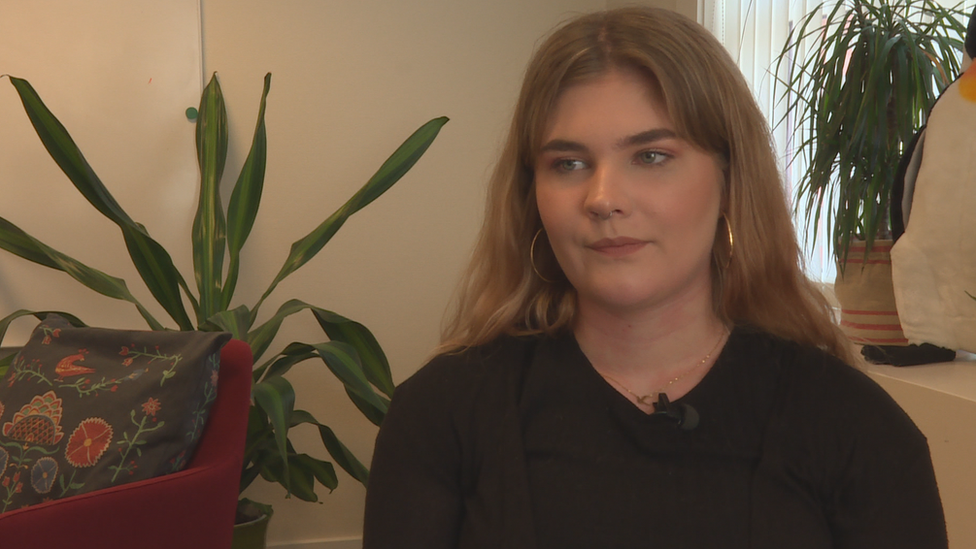Rape victim court cases outmoded says top judge
- Published
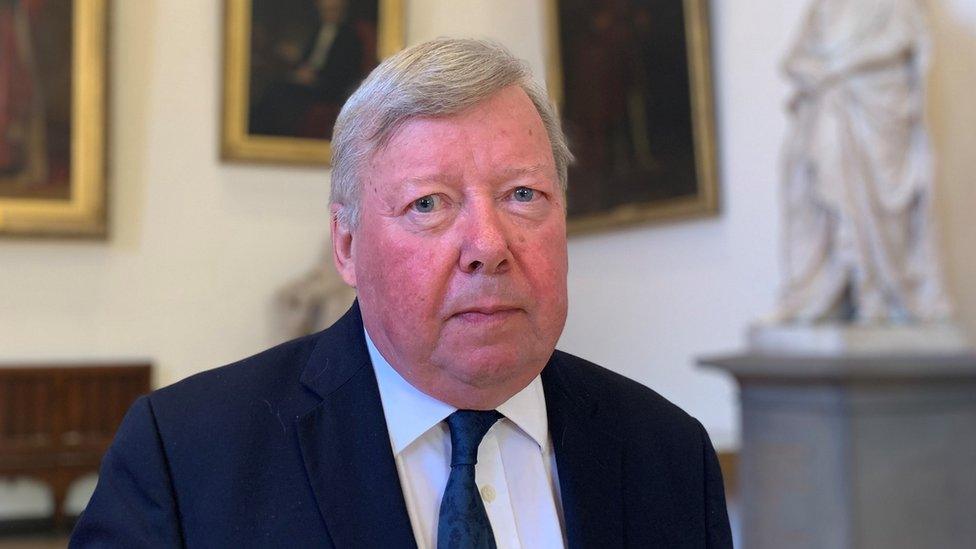
Lord Carloway has authority over the judiciary of any court established under Scots law
Scotland's most senior judge has told the BBC that the most vulnerable victims are still facing "outmoded" practices in court.
Lord Carloway said the justice system was not yet good enough at dealing with rape victims and children.
He said it was time to look again at why they were still being forced to go to court to give evidence.
The judge also suggested children might avoid cross-examination by defence lawyers.
That proposal has been strongly opposed by sections of the legal profession.
The senior judge's comments come after four women in the Logan Doig rape case spoke out about how traumatic the court process was.
They said they were left "battered and bruised" by the way they were treated when they were called to give evidence at his trial.
The women said their experience of the justice system was so damaging they would think twice about reporting an attack again.
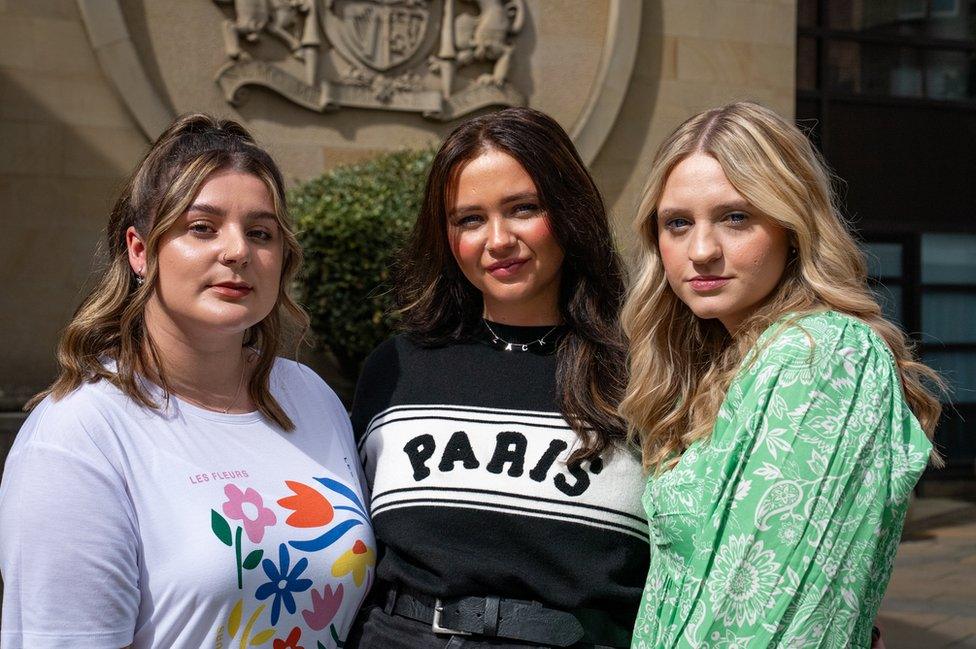
Hannah McLaughlan, Hannah Reid and Jennifer McCann gave evidence against Logan Doig
Although there are legal rules relating to lawyers asking about a victim's sexual history or mental health, many women believe that some advocates think it is their job to "break down" rape complainers.
The Scottish government said it was introducing reforms that would lead to more recorded evidence, and that funding had been allocated to tackle a backlog of court cases.
But Lord Carloway said there were a lot of problems with the current system and that questioning of alleged victims should be "trauma informed".
"Some are to do with resources, some with technicalities and some to do with the use of practices we consider to be outmoded and are taking some time to change," he said.
Lord Carloway is Scotland's Lord President and Lord Justice General, making him the head of the judiciary for both civil and criminal matters.
He said the time rape victims were having to wait for cases to come to the high court had doubled since before the Covid pandemic - from 22 weeks to 44.
"We hope that we will be able to get the delay period down but I don't see any realistic prospect of it dropping to the pre-Covid level," he said.
"I don't think that is achievable in real terms. Not just because of financial considerations but simply because we don't have the people to cope with that."
He said there were too few defence solicitors to deal with the volume of cases coming before the courts.
Pre-recorded video evidence
Twelve years ago Lord Carloway was commissioned to review the whole of the criminal justice system and made 76 recommendations - many of which have been introduced.
In 2015 he did a further review which looked to bring Scotland into the 21st century with the use of pre-recorded video evidence.
Since then the law has changed and vulnerable victims and witnesses are allowed to give pre-recorded video evidence and be cross-examined in advance of the trial "by commission" in the presence of the judge, prosecutor and defence.
However Lord, Carloway said there were concerns this was not happening enough.
"My understanding is that even at sheriff and jury level, but certainly at sheriff summary level, the commissions are not being used extensively," he said. "Again, it's a resource issue as I understand it."

'You are anxious every single day up until the court case'
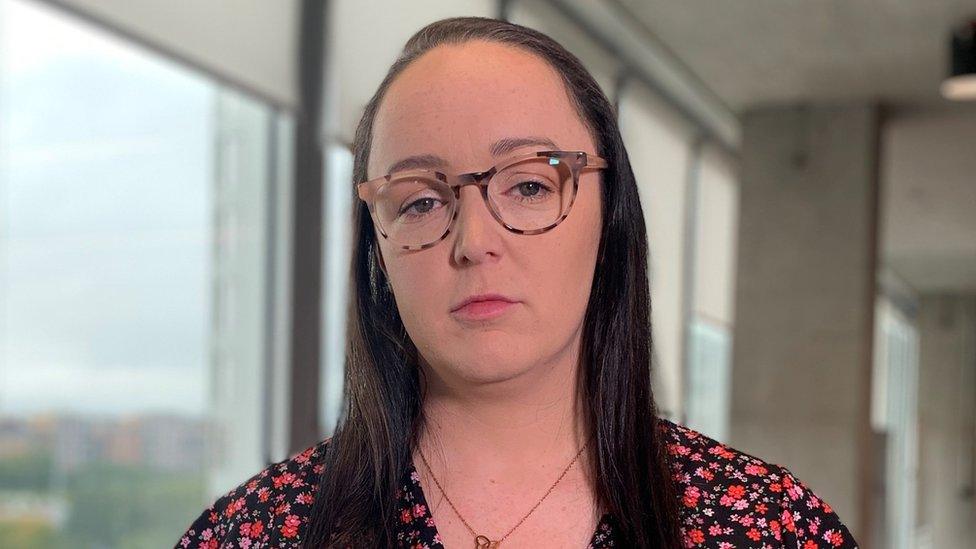
Katie Johnston said she found the experience of having to go to court traumatic
Katie Johnston was raped by a stranger in Union Terrace Gardens in Aberdeen in 2016.
She had to wait six months for her case to come to trial and says she would have been devastated if it had been double that as it is now.
"You are anxious every single day up until the court case thinking of all the eventualities, waiting in that state of limbo," she said.
She said she found the experience of having to go to court traumatic.
Katie said she felt she had no real idea of what was going on while the man who was ultimately convicted of raping her, had his own legal team.
She said she felt very alone and unsupported.
"For someone who is not a public speaker and is shy, the thought of going into court and telling this very vulnerable story to a court room full of strangers is nerve-wracking," she said.
Katie said being able to give pre-recorded evidence would have made such a difference. She feels she was treated like just another witness which added to the trauma.

Five years ago Lord Carloway called for Scotland to look to Norway for solutions to how to make the court system work better for children.
The law has changed and Scotland's first Bairns Hoose has opened but Lord Carloway said children were still being left too long before they were cross-examined.
"We have made several inroads into the problems we perceived five years ago," he said. "We introduced some solutions but there is much work still to be done. Both in relation to children and rape complainers.
"There are significant problems here which we are addressing but we've not succeeded in solving."
'Brutal and dehumanising'
Sandy Brindley of Rape Crisis Scotland said members of the public would be "horrified" if they knew how traumatic the court experience was for rape survivors.
She said most women were still having to give evidence in person in court and have been told it was often quicker than waiting to give pre-recorded evidence by commission.
Ms Brindley said so much of it came down to insufficient resources.
She said survivors were treated as if they are just witnesses to the crime. They have no lawyer, no preparation and are left feeling to face "hostile questioning" in the courtroom, she said.
"If there are not the resources to make these changes then it is not going to make any difference," Ms Brindley said.
A spokesperson for the Crown Office and Procurator Fiscal Service said it was committed to working with justice partners on the continuous development of measures, such as the use of pre-recorded evidence.
"Prosecutors will seek to use pre-recorded evidence, when appropriate, to ease the experience of those giving evidence," they said.
"Over time, building on and informed by good practice and supported by resources across the criminal justice sector and linked to the passing of associated legislation, the use of evidence by Commissioner is likely to increase further."
The Scottish government said it was bringing forward an ambitious package of reforms through Victims, Witnesses and Justice Reform (Scotland) Bill.
A spokesperson said they would "transform how cases are managed by embedding a presumption in favour of pre-recording the evidence of all complainers."
She added: "We know how distressing delays to cases can be and have a strong track record on court investment. Our budget for 2023/24 protects recovery funding of over £26m for the Scottish Courts and Tribunal Service to address the backlog."
Related topics
- Published30 August 2023
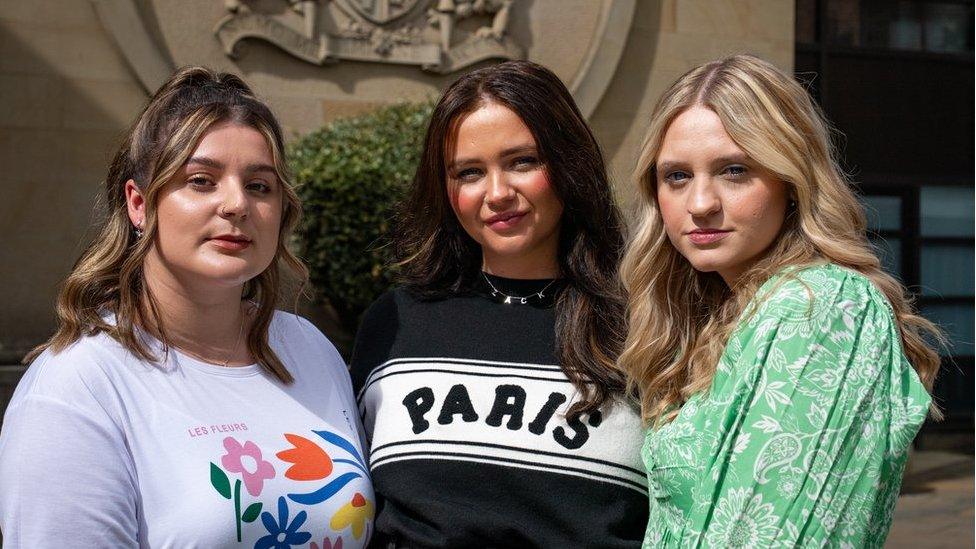
- Published2 May 2018
